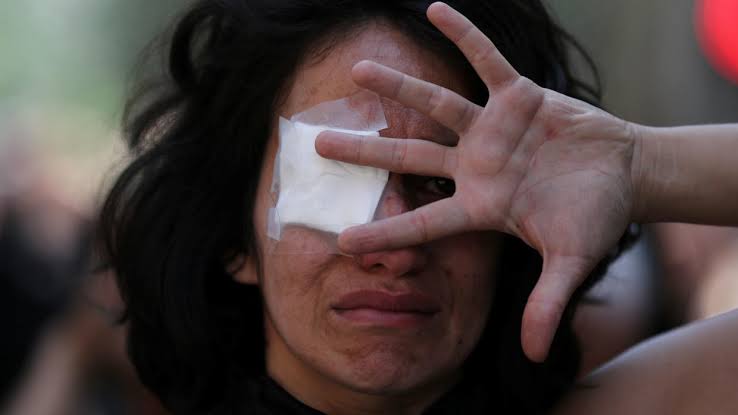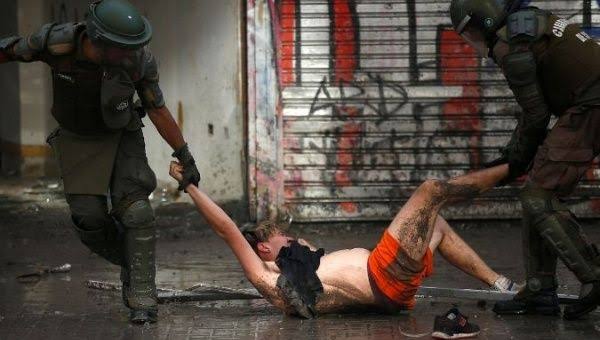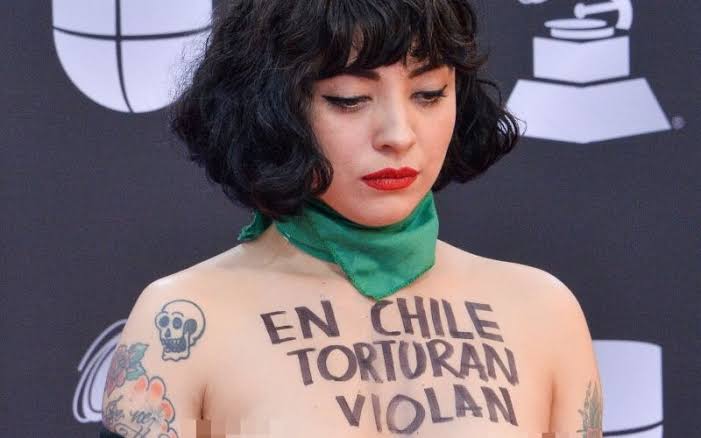RIO DE JANEIRO, BRAZIL – The United Nations High Commission for Human Rights, led by Michelle Bachelet, twice President of Chile (2006-2010 and 2014-2018), published on Friday a report in which it denounces “a large number of serious violations of human rights” during the recent popular protests.
“These include the abusive or unnecessary use of force, which has resulted in the arbitrary deprivation of life and injuries, torture, ill-treatment, sexual violence and arbitrary detention,” says the UN text.

Between October 30th and November 22nd, the commission dispatched a mission to Chile, where it visited seven regions of the country, interviewed the main state officials and 300 civilians and learned about the reports of 235 “victims of alleged human rights violations”.
On the other hand, the report recognizes that the Chilean government has cooperated, maintained a “frank dialogue” and delivered “extensive information”, thereby enabling “quick and unhindered access” to detention facilities.
However, the OHCHR denounced that both the Carabineros (police) and the Army did not abide by international norms and standards on the use of force.
The report states that of the 26 investigations by the Prosecutor’s Office into deaths that occurred during demonstrations in Chile, four cases are due to actions involving state agents. Romario Veloz Cortés is part of this group: A 26-year-old Ecuadorian citizen died in La Serena, about 500 kilometers north of Santiago, due to lethal ammunition being fired by military personnel, an event that is under investigation. “I seek justice… justice for all those who have died,” said his mother, according to the OHCHR report.
The United Nations points to the large number of people injured during the protests, including people injured in the eyes by the firing of rubber bullets. “The OHCHR considers that the alarmingly high number of people with eye or face injuries (approximately 350) shows that there are well-founded reasons to believe that the less lethal weapons were used indiscriminately,” says the High Commissioner, adding that although the use of rubber bullets was suspended while their exact composition was determined – they contained only 20 percent rubber, according to two academic studies – “this order was not fully implemented”.
The international body mentions the case of Gustavo Gatica, the 21-year-old student who on November 8th, was wounded in both eyes by gunfire from the Carabineros and has lost his sight altogether.

“The authorities had intelligence on the extent of injuries inflicted in this regard since October 22nd. However, the measures taken were not immediate and effective,” said the department headed by Bachelet, who was also the first woman to hold office in the Chilean defense ministry during Ricardo Lagos’ tenure as president (2000-2006).
Torture and ill-treatment
The OHCHR dedicates a section of its 35-page report to “torture and ill-treatment”, of which it claims to have collected 133 cases. On November 28th, the Prosecutor’s Office had opened 44 investigations along these lines.
For the most part, says the UN office, “the alleged perpetrators are members of Carabineros.” The report lists the most common forms that would have been used: hard punches, kicks, pistol whipp and batting, often carried out by several officers simultaneously.
“The OHCHR has also received reports of several cases of people being run over by security forces’ vehicles and motorcycles” and details reports that denounce “psychological torture such as death threats, threats to make the person ‘disappear’, threats of rape, beatings of family and friends in front of the person and threats of violence against the family”.
The organization led by Bachelet received “isolated reports” of simulated executions by the Carabineros and the military forces, as described by a 28-year-old Chilean.
“The Army knocked me down, I felt blows from the butt of a gun to my head and spine. When we got into the military vehicle, they kept hitting us and said: ‘Let’s take [the detainees] to the barracks and see how much they can handle the electricity. We begged them to let us go. They took us [out of the vehicle] in the darkness, and I could tell that we were in the back of the cemetery. There were about 12 soldiers behind us, who loaded their weapons. They made us shout ‘forgive me, Chile’. At that moment, I thought they would shoot us. We cried, held hands and said goodbye.”

On sexual violence – reported earlier by the HRW – the OHCHR collected 24 cases, which include “rape, threats of rape, degrading treatment (such as being forced to undress), homophobic or misogynistic comments, blows and deeds causing genital pain and fondling”.
The United Nations includes Carla’s 16-year-old account: “She was arrested by the Carabineros in Viña del Mar with her father on November 5th. At the time of her arrest, her father warned the Carabineros that she had a psychosocial disability. She said she was forced to show her breasts, that she was physically harassed with a baton and that she was threatened she would disappear”.
Based on data from the Ministry of Justice, the OHCHR estimates that between October 19th and December 6th, 28,210 people were detained, of whom 1,615 remain in pre-trial detention.
Referring to cases of illegal or arbitrary detention, the organization details the report of Jacinto, 20 years old: “He reported that he was arrested by a red van at 5:00 in the morning; they put a hood over his head and took him to a building where he was interrogated, threatened and tortured. According to the reports, they inserted needles under his fingernails and told him to say ‘everything he knew about the protests’.”
The OHCHR mentioned the destruction of public and private infrastructure during the social upheaval and interviewed police officers injured during the protests, which, according to the Ministry of the Interior, total 2,705 troops.
It also issued 21 recommendations to the Chilean state, including a number of measures related to the Carabineros, such as “establishing a system to collect, systemize and divulge information on human rights violations” and ensuring that the process of drafting a new constitution is inclusive, participatory and transparent, “including guaranteeing gender parity – 50 percent of men and 50 percent women – during the process and the involvement of indigenous peoples”. “Human rights must be at the heart of this national debate,” concluded the organization led by Bachelet in Geneva.

